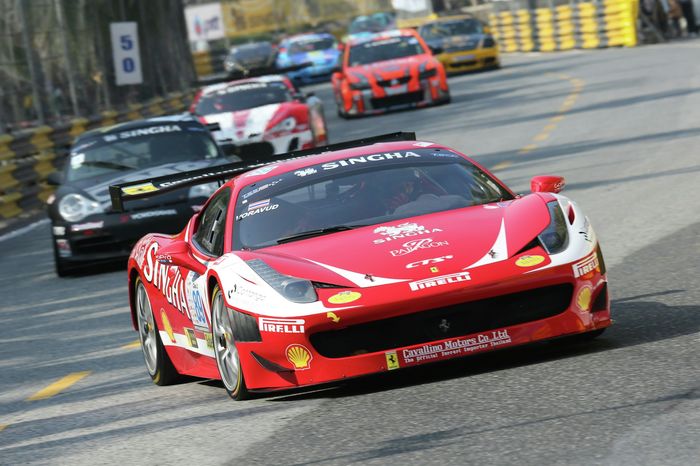Dune: Part Two is a true epic for the ages
Denis Villeneuve has succeeded where so many others have failed

Thanks to the pandemic and the easy access to films afforded by streaming, it’s all too easy to listlessly browse Netflix before settling on something mediocre. Dune: Part Two is the antidote to such ennui. Its majesty of sound and spectacle demands the effort and expense of a cinema ticket, keeping you entertained for just under three hours of unrelenting brilliance.
In Dune, we encounter four factions vying for control of the planet Arrakis (also known as Dune) and its ‘spice’, a commodity unique to the deserts of Arrakis. The story begins with the galactic emperor instructing House Harkonnen, who have been terrorising the indigenous Fremen during their occupation of the planet for spice extraction, to transfer control of Arrakis to House Atreides. Retaliation and battle ensues, resulting in House Atreides being uprooted and their heir Paul (Timothée Chalamet) and his mother Lady Jessica (Rebecca Ferguson) seeking refuge among the Fremen.
Part Two continues almost immediately where Dune leaves off (the last line of Dune being “This is only the beginning”) and charts Paul’s rise through the Fremen ranks in quest of revenge against the Harkonnens. Initially an obvious outsider who knows little of the ways of the desert, Paul learns to become a fearsome warrior and prophet. Months pass as Paul grapples with the burden of destiny, his belonging with the Fremen and his bloodthirsty desire for revenge. Throughout the saga, he is plagued with prescient visions, each providing more questions than answers. Will he succumb to the paths laid out by those working behind the scenes or remain faithful to his newfound people?
“These films are the culmination of a long struggle to adapt Frank Herbert’s 1965 novel”
These films are the culmination of a long struggle to adapt Frank Herbert’s 1965 novel, long considered unadaptable due to the richness of his world, complex dynamics between opposing factions and prominent internal monologues. The graveyard of proposed adaptations is littered with Dune hopefuls, of which the most famous was set to last fourteen hours. When David Lynch successfully released an adaptation in 1984, poor reviews and studio interference led him to disown the film.
Taking on the mantle, director Denis Villeneuve circumvented these issues by prioritising visuals over dialogue. As Villeneuve told NPR, the power of cinema is “the ideas that unfold through images”. Inspired by 2001: A Space Odyssey and Apocalypse Now, Villeneuve not only transports you into his worlds, but immerses you in them. Whether it’s the ink-blotted language of Arrival (2016) or the cityscapes of Blade Runner 2049 (2017), there’s always a distinctive visual element that remains with you long after credits roll.
“The film allows a new generation of Hollywood stars to shine”
So too with the Dune films. From the warm orange hues of the Arrakian sandscape to black-and-white gladiatorial combat on a planet orbiting a black sun (not to mention the sheer awe of watching an entire battalion ride a hundred-metre-long sandworm into battle), the film sears the eyes and etches itself into the memory. These stunning visuals are complemented by thunderous sound design and an incredible score from Hans Zimmer.
Moreover, the film allows a new generation of Hollywood stars to shine. Chalamet brings range and power, carrying the emotional arc of the film. Zendaya, as Fremen warrior Chani, has a much expanded role compared to Part One, and is compelling throughout. Austin Butler leaves an indelible mark as Feyd-Rautha, delighting in malice and wholeheartedly committing to such a dangerous role. Rebecca Ferguson is the most haunting as Lady Jessica, sowing seeds of faith in far-flung Fremen communities and conversing with an unexpected aide… Ferguson instils a fear of something otherworldly, as she communicates Jessica’s beliefs with an omniscient detachment. Javier Bardem’s Stilgar is a personal favourite and new internet darling, providing much needed levity whilst also highlighting the tragedy of all-consuming zealotry.
The cinematic experience of Dune: Part Two mirrors that of legendary sequels such as The Two Towers or The Empire Strikes Back. However, the film’s break-neck pace prevents the viewer from developing a deep emotional connection with the plot or its characters. While brilliant, Austin Butler’s Feyd-Rautha seems underutilised compared to the likes of Saruman or Vader. Similarly, Villeneuve’s preference for visuals over dialogue precludes some scenes from delivering their full impact. You will leave the film stunned but neither heartbroken, furious nor ecstatic.
Nevertheless, there is unprecedented power in mythology. Unfortunately we live long after the days when orators would relay the legends of Gilgamesh, Odysseus or Beowulf. Yet experienced in this way, the story of Paul Muad’dib Atreides, prophesied messiah to the Fremen of Arrakis, feels like a true epic for the ages.
 Features / 3am in Cambridge25 June 2025
Features / 3am in Cambridge25 June 2025 Comment / Why shouldn’t we share our libraries with A-level students?25 June 2025
Comment / Why shouldn’t we share our libraries with A-level students?25 June 2025 News / Gardies faces dissolution27 June 2025
News / Gardies faces dissolution27 June 2025 Theatre / Twelfth Night almost achieves greatness26 June 2025
Theatre / Twelfth Night almost achieves greatness26 June 2025 Sport / Sport, spectacle, and sanctioned collisions: May Bumps 202525 June 2025
Sport / Sport, spectacle, and sanctioned collisions: May Bumps 202525 June 2025





